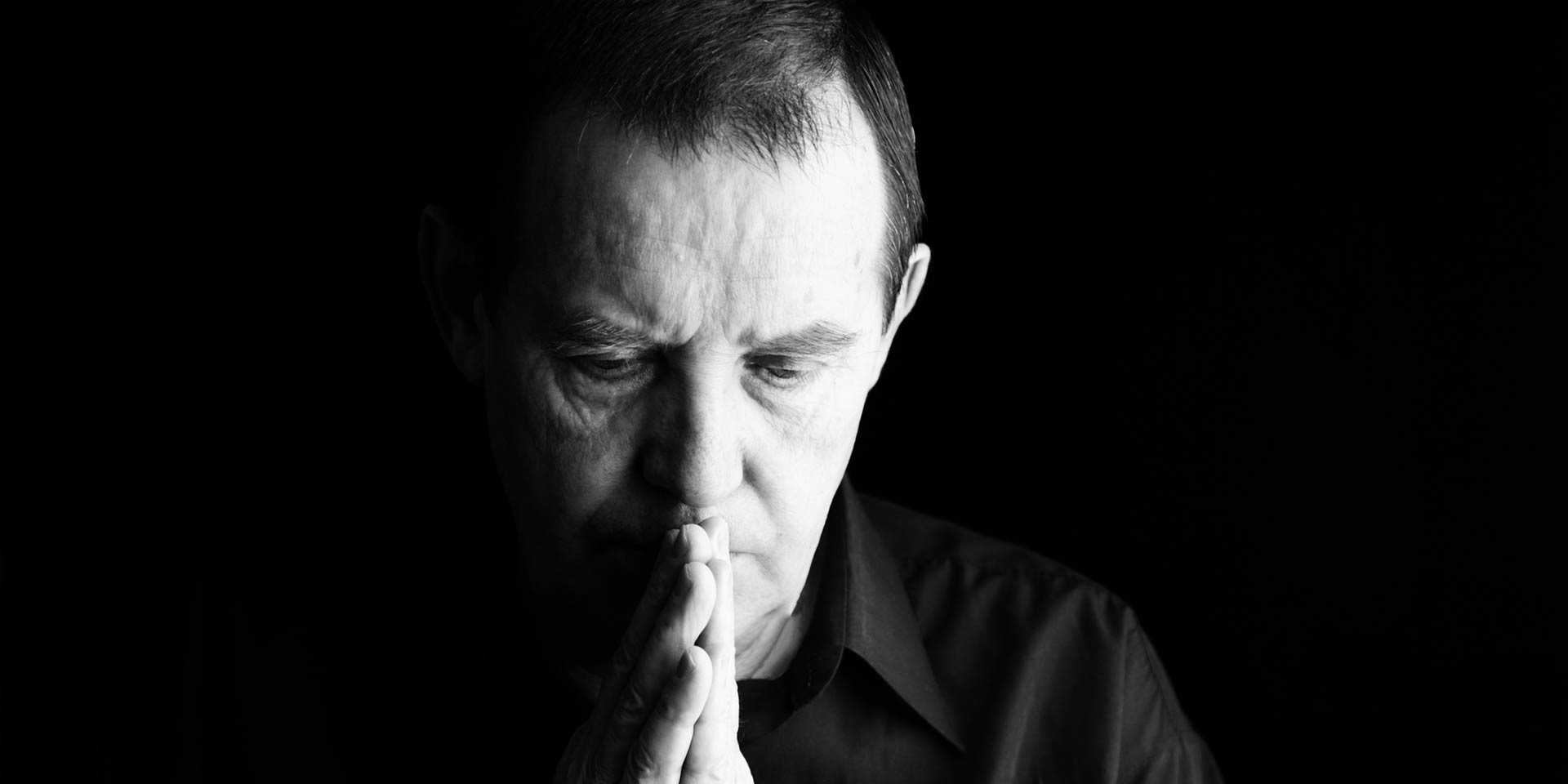In the aftermath of Hurricane Harvey, Max Lucado wrote an article summarising the spiritual lessons we can learn from an event that the news described as a “once-in-a-thousand-years flood”.
Harvey was followed by two more devastating hurricanes, Irma and Maria, and discussions of these disasters can be had on a number of levels, from the effectiveness of the government response to the debt we owe to a planet we have disastrously managed for decades without fear of repercussions.
The Christian author chooses to focus on the spiritual dimension of loss, and his message is that beyond the prayers and practical help that we can offer to the victims, we need to learn some lessons about life, relationships or material things. Especially since no one can ever be guaranteed that nothing bad will ever happen to them.
Sadly, the occasions on which people face material loss are increasing, whether for individual reasons or as part of collective destruction, such as the floods in China and Nepal, the earthquakes in Mexico or the war in Syria.
One of the lessons that loss teaches us, Lucado emphasised, is the immeasurable value of people as opposed to things. This is not to say that material losses should be trivialised, only that in times of crisis everything tends to be placed more correctly in a hierarchy that is otherwise rather chaotic in the respite of prosperity.
Crisis changes the definition of material needs
“We can rebuild your home but we cannot rebuild your life,” warned Florida Governor Rick Scott before Irma hit the United States, urging residents to comply with evacuation orders. He also advised people to hurry up and pack the essentials, and nothing else.
Such a dire situation brings to the fore a question that may not have puzzled our ancestors much, but which for 21st-century people requires a more intense effort than Champollion’s deciphering of hieroglyphics: how much (or how little) is enough?
Sometimes life forces us to squeeze into even smaller spaces—like a neoprene belt or a plastic bag used to protect refugees’ documents— all that is left of a life that has been swept away.
The question of how little (or how much) is enough is seen in a different light at life’s turning points—be it a hurricane, a war or an illness with a predictable end.
And while these are only stages in a more or less settled existence, the extreme events that our peers experience can have an intimidating and demoralising effect on us—just as they can open our eyes to the authentic values of existence and suggest adjustments to our excessive need for things. For while it is obvious that materialism has become the mirage of the modern world, it is also certain that its frivolous twists demand sacrifices in return—some of which we should never have consented to.
The fleeting and fragmented pleasures of materialism
Steve Taylor, a lecturer in psychology at Leeds Beckett University, signs an article entitled “The Madness of Materialism”. He recounts the exodus of gold diggers to California after rumours of the precious metal reached every corner of the globe, and compares it to the materialistic obsessions of the present day.
Gold fever attracted no fewer than 300,000 people from within the United States and abroad. But for too many of them, the effort proved rather sterile. Although the gold mined was worth billions of US dollars, only a minority managed to amass impressive fortunes, while many made a modest profit, if not a loss. And a significant number of adventurers—exposed to the risks of travel, shipwrecks, cholera or typhoid epidemics and increased crime—never returned home.
The excuse that most gold diggers had—extreme poverty and hunger—is not applicable to the vast majority of the Western world, points out Steve Taylor, whose theory is that the appetite for material goods is born not of financial hardship but of inner dissatisfaction. It is already a truism that material wealth does not bring happiness, especially after studies have consistently disproved this causal relationship, but modern people seem obsessed with replicating this experiment themselves, with a hidden desire to disprove its conclusion.
We accumulate material things in a Sisyphean effort to assuage our inner dissatisfaction, but the effect is not what we expected, says Taylor. The euphoria of a new acquisition and the pride of ownership are all we get in return. It’s a damaging investment, because the pleasurable thrill of a purchase lasts on average two days, and the pride of an expensive possession, while more durable, is just as fragile—any unfavourable comparison can sap its fuel in an instant.
Balancing hedonism and asceticism
A Christian would interpret this inner dissatisfaction, with the insatiability it shows, as the inadequacy of our being in a world in which we are forced to live, but which is woven from a fabric that is alien to that of the deepest human longings. And this reality coexists with another, equally true reality: material things are part of God’s gift to mankind. This is the dilemma which also contains the key to the answer: that a Christian is called to live in the atmosphere of two worlds, the visible and the heavenly, so different from each other, but which have in common the fact that they are God’s creation.
Noting that our world is blessed with abundant gifts, Philip Yancey observes that the way we use them confirms their quality. It is not easy to strike a balance between the uninhibited manifestation (and satisfaction) of every desire and the brutal repression of even the most legitimate.
“Living a balanced life is like riding a horse, in that falling poses equal dangers on the left side or the right. Only if you stay in the saddle can you experience the thrill of riding.” Between the extremes of the “purveyors of extra spirituality”, the military-style repression of what is permissible, and that into which the followers of hedonism have plunged, the solution, Yancey argues, is to accept that humans must seek, beyond their desires, a supernatural order to which they must submit. This is the idea that Blaise Pascal put into his prayers: “Be their End [of good desires], as you have been their Beginning.”
The Apostle Paul advises us to put “things above” at the centre of our thoughts. In this process of focusing on spiritual matters, material concerns should take a step back, relinquishing a position that does not rightfully belong to them, although they are in the habit of usurping it. Undoubtedly, living in this world, all things material will continue to play a well-defined role in our lives, but the message of the Bible is that we must not allow ourselves to be dominated by these concerns. And one of the reasons that comes in handy when our possessions are attacked is that material things are very fragile. It takes very little for them to disappear as if we had never possessed them. But what is strange (and revealing of the way we are built) is that when the greater losses are weighed in, the material ones become secondary.
The blessing of being alive
Max Lucado believes that one of the lessons of disaster is that things are less important than people, that possessions are fleeting but that relationships have the potential to last forever.
People mourn the loss of their friends or family members, not the damage caused by the loss of golf clubs, TVs or cars, no matter how expensive, Lucado points out.
No doubt people also mourn the material losses they suffer, especially when the loss involves their homes or irreplaceable possessions, but what the author says is that at the heart of the tears of joy or sorrow is always the fate of loved ones.
This truth is also captured by CNN journalist Mallory Simon, who traces Hurricane Harvey’s path from Corpus Christi to Houston in a journey that captures the many facets of devastation.
Moby Dick’s, a popular restaurant in Port Aransas, was reduced to rubble. Ed Ziegler, the owner, estimates he lost $2 million. “But at least I’m alive,” he says, as are his family members.
Howard Singleton and his 18-year-old son, Shane, used a small, motorless fishing boat to rescue their neighbours from homes where the water had trapped them. Shane says it’s inevitable that the destruction will cause anger and sadness in those affected, but these feelings are mixed with the happiness of having saved their own precious lives. “They may have lost everything but they still have their family,” he says.
And what they still have outweighs what they’ve lost, in the sense that life manages to be more than the sum of all the good things that make it up.
Life’s catastrophes, Lucado concludes in his article, have an unmistakable way of prying our fingers off our possessions and causing us to look through a normalising lens at what we previously considered valuable or unimportant.
Gifts with a shelf life
Christian missionary and author Elisabeth Elliot has learned from practical experience that all things are given by God to be enjoyed for a time. Surely it is more difficult for us to learn to treat our possessions with the detachment of someone who knows that one day (at least on the day of our death, if not much sooner) we will have to give them up, along with the comfort and security they have given us.
Elliot quotes two biblical texts that describe the Christian attitude to material things. The Bible says: “God… richly provides us with everything for our enjoyment” (1 Timothy 6:17). And at the same time it warns: “Do not love the world or anything in the world” (1 John 2:15), mentioning the love of money as the root of all evil, which pierces with great pain those who fall into its snares. Joy celebrates, love enslaves.
Moreover, gratitude enhances the taste of joy because it removes the fear of tomorrow. We don’t know if tomorrow will dawn in the colours of today, but whether the gifts are there or gone without notice, the Giver will still be there.
To those who live in the shadow of fear of an uncertain future, Elisabeth Elliot reveals the vivid meanings of the losses she herself has suffered. Her life as a missionary deprived her for years of all the comforts of life in America. Material losses did not escape her even when she returned home, but they were only pale shadows of incomparably more painful losses: the death of her first husband, Jim Elliot, killed by the Auca Indians two years and three months after their marriage; and the slow and agonising end of her second husband, Addison Leitch, four years after their marriage.
In drawing the line, Elizabeth confesses that the most overwhelming losses of her life, the ones she feared most, were a small sacrifice compared to “the surpassing worth of knowing Christ” (Philippians 3:8).
If we are convinced that all we have belongs to God, we must be even more convinced that all that is His belongs to us. This is told to us by the heavenly Father Himself in His words to the stubborn older brother in the parable of the prodigal son: “‘My son’, the father said, ‘you are always with me, and everything I have is yours'” (Luke 15:31).
In the midst of all the bad news, this is a real breaking news story that reminds us that we live in a world that has been weathered by sin, where loss is the dialect we speak from the dawn to the dusk of life. But if all that God has is also ours, then there are no truly irretrievable losses—unless we lose Him.
Carmen Lăiu is an editor of Signs of the Times Romania and ST Network.



















